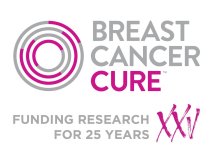
BCAC Chair Libby Burgess reflected on this question after attending the premier international breast cancer research conference, SABCS 2023, in San Antonio Texas last month. Triple negative breast cancer (TNBC) is an aggressive subtype lacking HER2 or hormone receptors. It is the most challenging type of breast cancer to treat, particularly at the advanced stage. However, research over the last 20 years has broadened treatment options and improved patient outcomes.
At SABCS, Libby was…

Many patients with advanced breast cancer use herbs and supplements, as well as other treatments like relaxation and massage, to relieve symptoms. However, many patients are taking herbs or supplements that may be harmful or interact with their cancer medications. Most cancer drugs and most foods, herbs and supplements are broken down by the same liver enzyme pathways; a particular example is grapefruit, which therefore interacts with trastuzumab and paclitaxel (among many others). Two…

BCAC’s Marion Barnett recently attended ABC7 online, an international conference on advanced breast cancer. Here is her report on a talk about integrative medicine given by German breast cancer researcher Rachel Würstlein. Integrative medicine is the combination of medical treatments for cancer and complementary therapies to cope with symptoms and side effects.

Researchers have engineered gold nanoparticles to target blood vessels in tumours and make them leaky so that chemotherapy drugs can get in and do their work more easily. Tumours have their own blood supply and it is already known that these blood vessels behave differently from those in normal tissue.

Women with obesity when diagnosed with early breast cancer have a higher risk of recurrence or a second cancer compared with women whose weight is in the normal range, but losing weight after a diagnosis can be difficult.

Ribociclib (Kisqali) is already used to treat advanced hormone receptor-positive (HR-positive) breast cancer. Now new research has shown it can also reduce the risk of recurrence when used in early breast cancer.

While drugs given during chemotherapy can help to combat nausea, more than half of patients also suffer from delayed nausea and vomiting. This kicks in after chemo has finished and can last for days. Some oncologists had reported that pantoprazole, a proton pump inhibitor which reduces stomach acid, was helpful for these patients. However, others were not convinced.

Otago University PhD student Hui Yee Yao is collaborating with Auckland-based medical oncologist Dr Catherine Han on a research project to provide insights on how New Zealanders diagnosed with breast cancer choose their treatments. Hui Yee is looking for survey participants now. Click here to learn more.

Dr Emma Nolan is a breast cancer scientist who recently moved back to New Zealand after training and working in overseas labs for the last 11 years. During her PhD, Emma helped to discover a potential preventative medication, Denosumab, that could potentially prevent or delay breast cancer arising in high-risk women who inherit a faulty BRCA1 gene.

BCAC member group Breast Cancer Cure has announced a new partnership with Cancer Research Trust to fund New Zealand research into breast cancer. Both organisations are philanthropic funders that have raised and granted millions of dollars to local cancer research over the last 25 years. The new funding will enable at least two new breast cancer research projects to be added to the work already being supported by Breast Cancer Cure.



